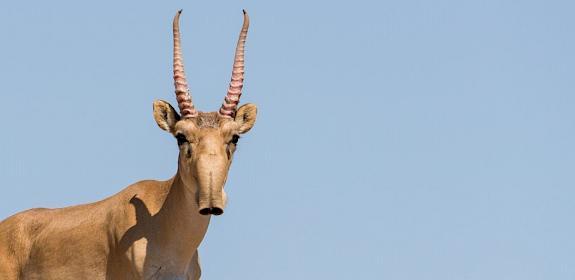
Red-rumped Parrot Psephotus haematonotus, imported through Europe for the global pet trade
i
TRAFFIC in Europe
Europe is one of the largest and most diverse markets for wildlife and wildlife products, serving as both an end market and transit hub for wildlife products in trade.
The removal of internal border controls since the formation of the European Union's (EU) single market has created new avenues and opportunities for transboundary wildlife crime. New smuggling methods and routes are actively sought out by traffickers to avoid detection, making close international collaboration a high priority. We're working to identify threats from unsustainable trade and consumption in Europe, as well as supporting governments in their efforts to detect and prevent illegal trade.
current focus:
trade monitoring, collaborative enforcement, sustainable wild plant harvesting
an introduction to our priorities
The EU market for legal wildlife trade is estimated to be worth EUR100 billion a year and includes live animals, ornamental plants, tropical timber, food, leather, ivory, curios, and wild-plant -based medicines. Monitoring such trade, and ensuring effective implementation of CITES regulations is a high priority for our European offices.
Similarly, Europe serves as a source and transit hub for illegal wildlife trade, with European sea and airports commonly used when smuggling illicit wildlife products from Africa to Asia. TRAFFIC's European Union Trade in Wildlife Information eXchange (EU-TWIX) is one way we're helping European law enforcement officials to detect, prosecute and prevent illegal wildlife trade.
We work across the European Union Member States and neighbouring countries
i
contact us in Europe
Belgium
Hungary (Outposted staff)
+36 1 214 5554 (Ext 126)
TRAFFIC Global Office (UK)
+44 (0)1223 277427

Relaxed border control in any of the EU Member States presents opportunities for illicit traders to smuggle illegal wildlife products into the EU single market, making close co-operation between Member States essential
Katalin Kecse-Nagy, Director - Europe
some areas of focus within wildlife trade in Europe
Explore priorities we're working on within wildlife trade in Europe and their links to our wider projects.
Europe's trade in wildlife products is extremely diverse, varying from wild plant ingredients and wildlife-based medicines to threatened birds and exotic pets. Germany for example is a major consumer, producer, and processor of medicinal and aromatic plants, with imports worth USD250 million in 2015 alone.
TRAFFIC is helping to implement the FairWild Standard as a framework for the sustainable harvesting of wild plants in several European countries—an ancient trade that support the livelihoods of some of Europe's most impoverished communities. Supporting the implementation of CITES and enforcement agencies is another major priority within Europe, as well as assessing new trade trends and wildlife commodities.
a selection of our conservation projects in Europe
Trade in Wildlife Information eXchange
Ensuring effective and rapid collaboration between European enforcement agencies is key in the fight against illegal wildlife trade.
TRAFFIC's European Union Trade in Wildlife Information eXchange (EU-TWIX) is helping to facilitate the rapid exchange of information and expertise between European enforcement officials via an online platform, helping to detect and prosecute illegal wildlife crime.
Elephant ivory seized by UK enforcement agencies © WWF-UK / James Morgan
i
the FairWild Foundation
TRAFFIC is a founding partner of the FairWild Foundation—a best practice framework for the sustainable, ethical, and responsible harvesting of wild plant products.
It simultaneously helps to protect target species, wider ecosystems, and the collects themselves from exploitation and damaging practices. The FairWild Standard and FairWild certification is being implemented across Europe, as well as in Africa, Asia,and beyond.
the LENA Project
The Local Economy and Nature Conservation in the Danube Region (LENA) project is implementing the FairWild Standard in protected areas across the Danube Region.
Activities in Hungary, Bulgaria, Slovenia, and Serbia are teaching wild plant collectors sustainable harvesting techniques and engaging local stakeholders to increase the volume of retailed products using sustainable wild plant ingredients.
latest reports related to EUROPE
Europe is a major consumer and trader of wildlife products. Explore the latest publications here.
For the full TRAFFIC archive, visit our publications page.










